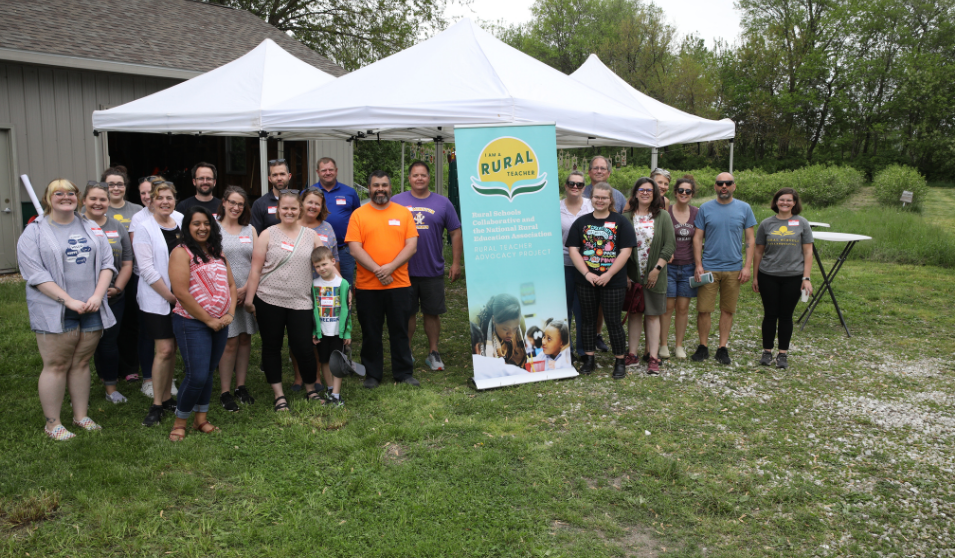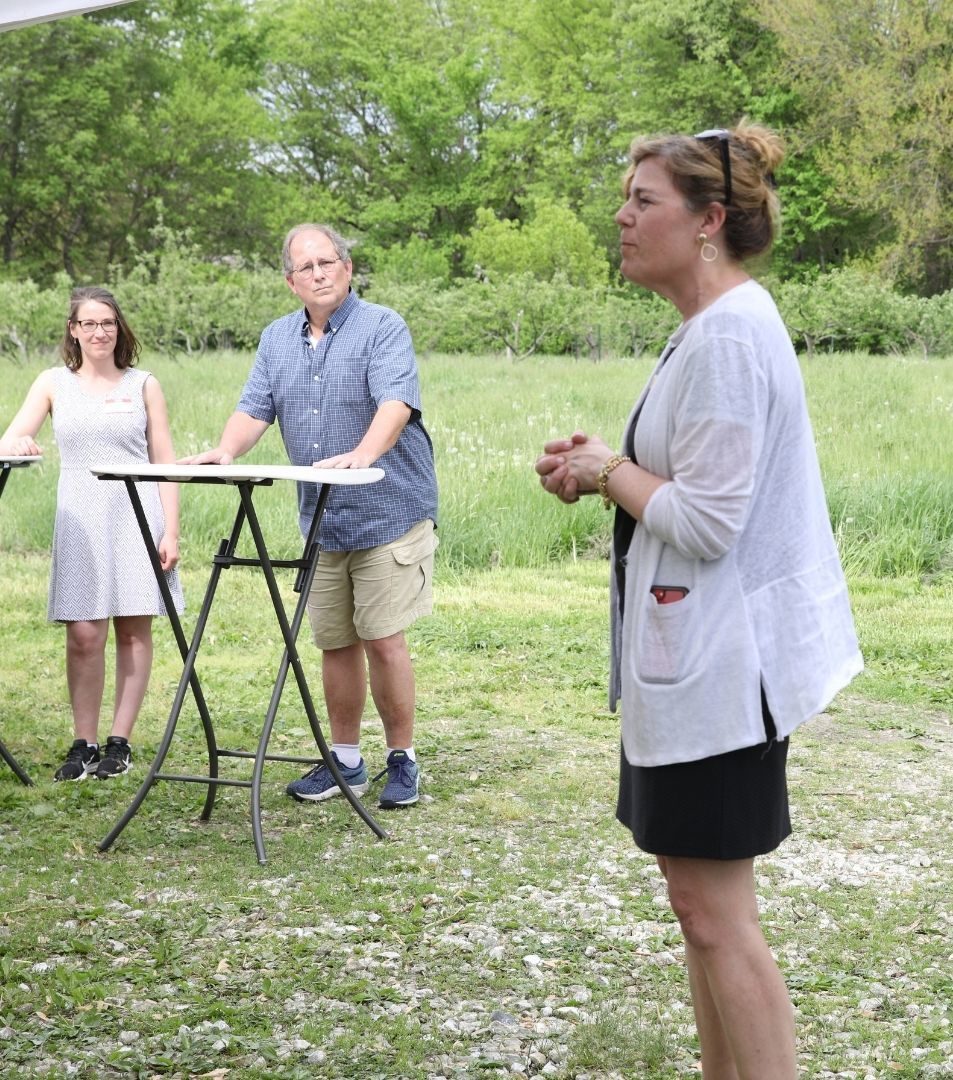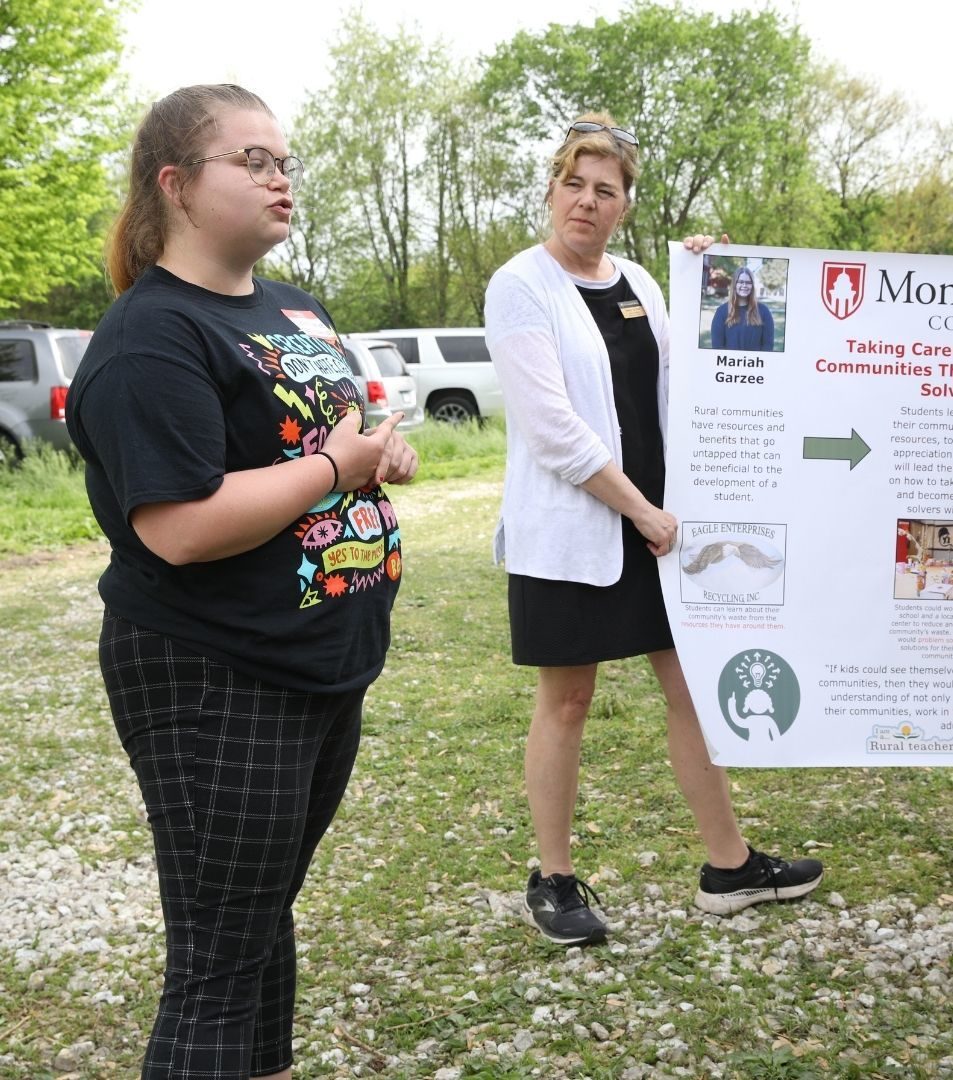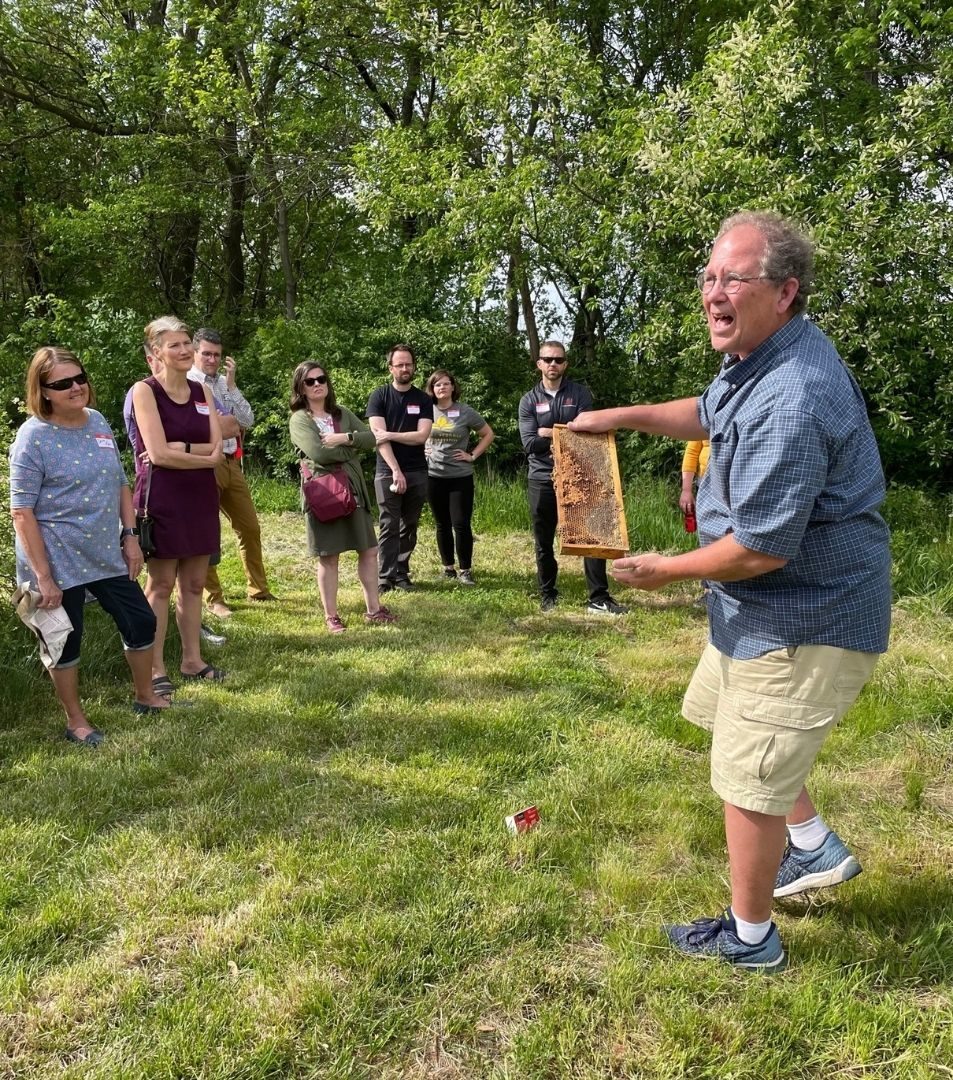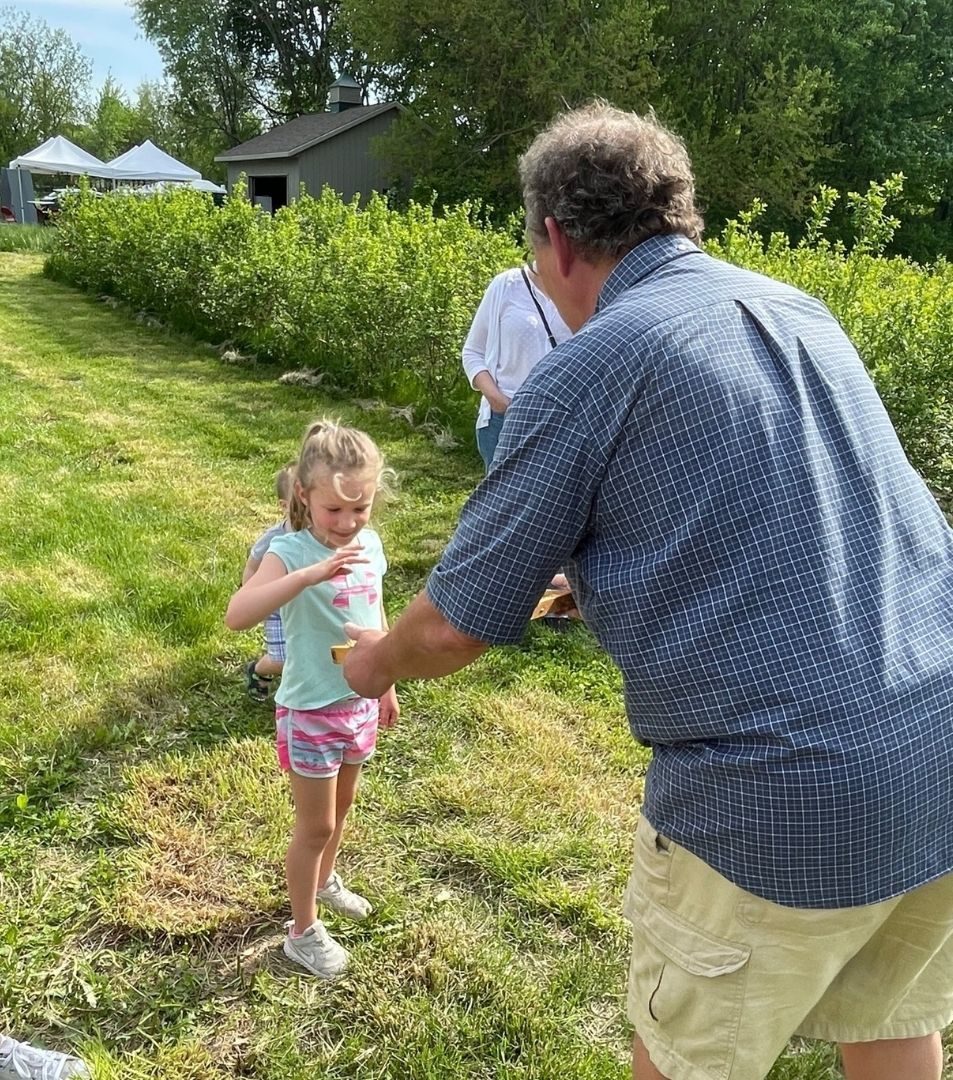On Tuesday May 17th, and with the help of Monmouth College's REDI program leaders, the RSC team gathered with partners and friends who traveled from places both near and far to experience an afternoon at Monmouth College's Educational Farm in celebration of our Illinois Hub and our long partnership with Monmouth College.
Together, we had the opportunity to hear from Tammy LaPrad who spoke briefly about the origins of REDI, which started simply as a cohort of colleagues who were passionate about place-based and locally-relevant teaching. It was this shared passion for place-based education that resulted in a signature partnership formation between Monmouth College, the Galesburg Community Foundation (GCF), and Rural Schools Collaborative (RSC). With support from GCF and RSC, Craig Vivian–the group’s earliest advocate–and his colleagues launched the TARTANS Rural Teacher Corps which, along with place-based schools and the Farm, became the REDI program.
We also heard from Jenni Dickens who talked about the importance of place-based education, the work REDI is doing with multilingual students, and their growing partnerships with individual teachers and districts. Finally, we had the opportunity to hear from Mariah Garzee, a 2022 TARTAN Alumna who will be teaching 6th grade Social Studies and English Language Arts at Central Intermediate in Monmouth. Mariah shared with us the poster she presented at the College’s recent Scholars Day, speaking about the importance of allowing students to solve real-world challenges in their community and using community waste management as an example by giving students the chance to problem-solve through the identification and creation of new opportunities for recycling and repurposing.
After hearing from our amazing speakers, Craig Vivian led us on a tour of the Farm, introducing us to the site’s many fruit bushes and trees, its chickens and massive compost pile (both of which are among the favorite farm sites for the young students who visit), the hothouse that almost wasn’t, and–of course–the bee hives, where everyone took turns tasting honey straight from the hive.
It was a beautiful day to be at the Farm, and it was great to see so many community members and partners come together to learn more about the place-based learning opportunities in the Monmouth community. We’re so grateful to all of those who attended and participated in the event!
If you’re interested in learning more about the REDI program and its impact, we’re happy to share that REDI just released its 2021-2022 Annual Report. The aim of the REDI Report is to share out the successes of the program to the surrounding community and stakeholders, and we hope you enjoy learning about some of the outstanding grassroots action being taken to unite schools, advance teacher preparation, and connect communities through a place-based and nature-based lens.

